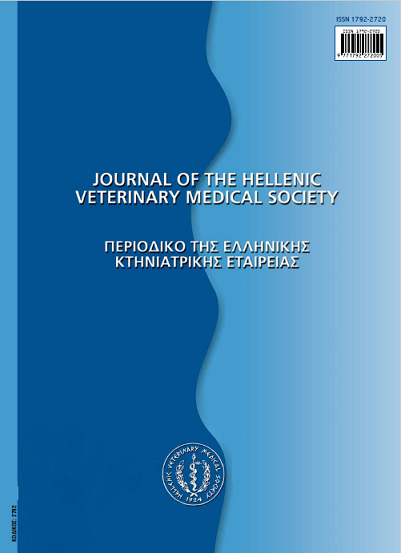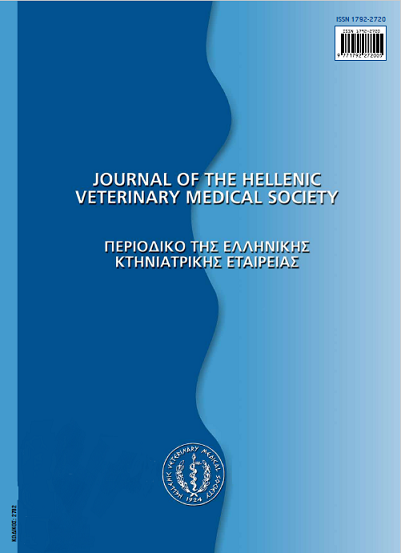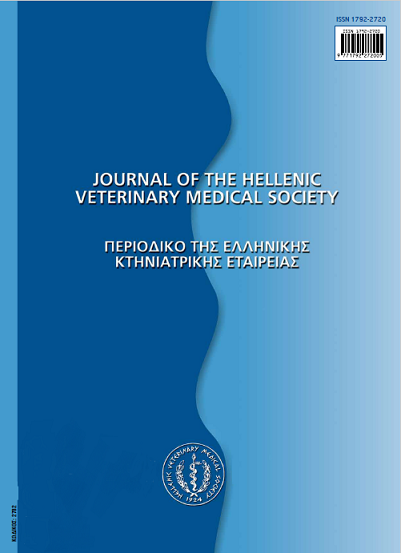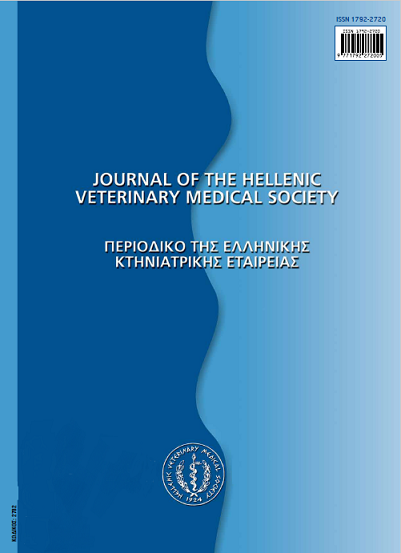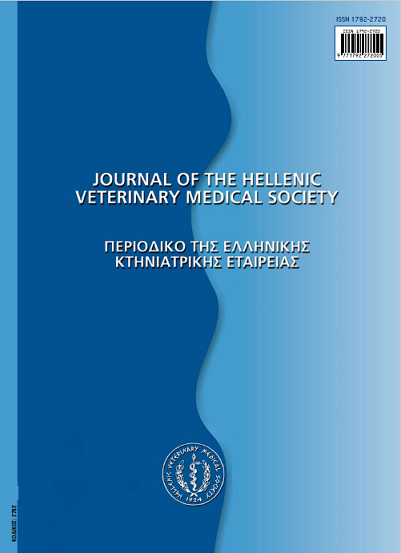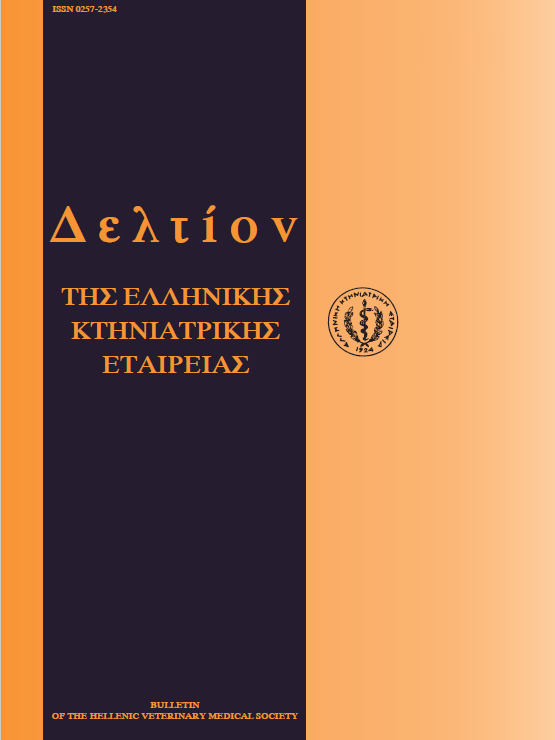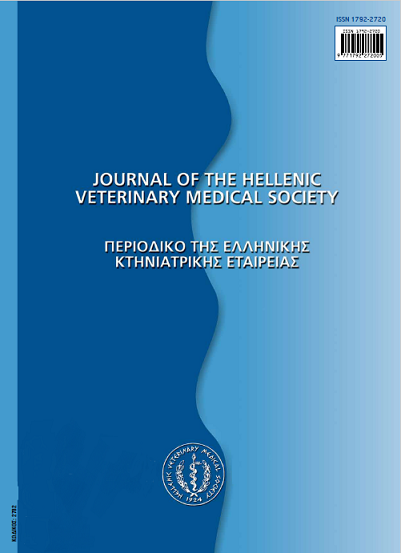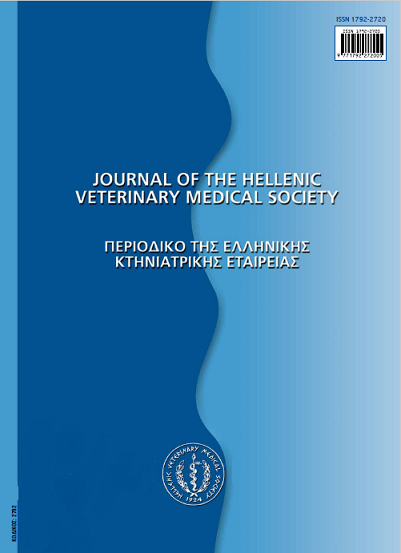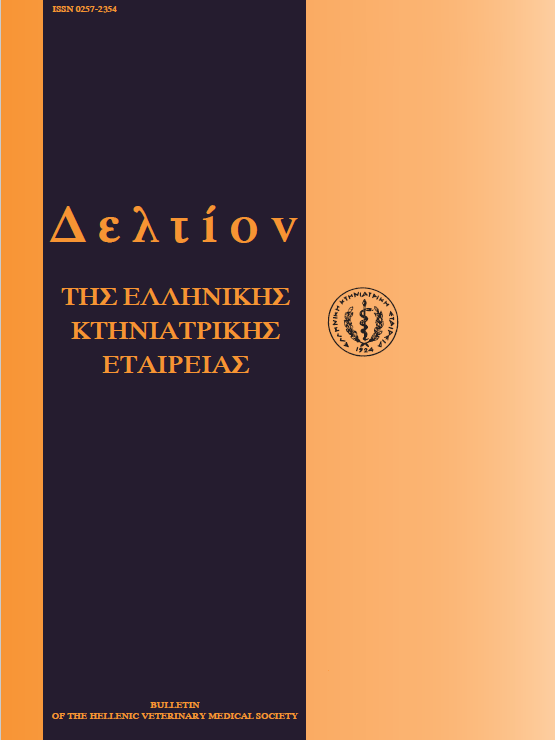Study of microbiological aspects of meningoencephalitis due to Listeria spp in ruminants
Abstract
Microbiological aspects of meningoencephalitis due to Listeria spp in Northern Greece were studied. The diagnosis was based on the isolation of Listeria monocytogenes from bovine, sheep and goats brains. Forty three bovine herds, 310 sheep flocks and 976 goat herds, suspicious of the neural form of listeriosis, were examined and 2 (4.6%), 60 (19.3%) and 361 (36.9%) of them were found positive, respectively. It was ascertained statistically (P<0.05) that encephalitic listeriosis affects mostly goats than sheep. All strains, except two, were isolated from adult animals mostly in December and January. Sero typing of 141 strains showed that serovar 4b was predominant (81%) and was distributed among all the areas where listeriosis was detected. Phage typing of 60 strains allowed the clustering of strains, those belonging to the same serotype and phage lysed by the same phage or a series of phages. These groups were found mainly in bordering areas with few exceptions. This fact probably shows the common origin of these strains.
Article Details
- Zitationsvorschlag
-
GIANNATI-STEFANOU (Α. ΓΙΑΝΝΑΤΗ-ΣΤΕΦΑΝΟΥ) A., TSAKOS (Π. ΤΣΑΚΟΣ) P., BOURTZI-HATZOPOULOU (Ε. ΜΠΟΥΡΤΖΗ-ΧΑΤΖΟΠΟΥΛΟΥ) E., & ANATOLIOTIS (Κ. ΑΝΑΤΟΛΙΩΤΗΣ) K. (2017). Study of microbiological aspects of meningoencephalitis due to Listeria spp in ruminants. Journal of the Hellenic Veterinary Medical Society, 57(4), 275–288. https://doi.org/10.12681/jhvms.15048
- Ausgabe
- Bd. 57 Nr. 4 (2006)
- Rubrik
- Research Articles
Authors who publish with this journal agree to the following terms:
· Authors retain copyright and grant the journal right of first publication with the work simultaneously licensed under a Creative Commons Attribution Non-Commercial License that allows others to share the work with an acknowledgement of the work's authorship and initial publication in this journal.
· Authors are able to enter into separate, additional contractual arrangements for the non-exclusive distribution of the journal's published version of the work (e.g. post it to an institutional repository or publish it in a book), with an acknowledgement of its initial publication in this journal.
· Authors are permitted and encouraged to post their work online (preferably in institutional repositories or on their website) prior to and during the submission process, as it can lead to productive exchanges, as well as earlier and greater citation of published work.

